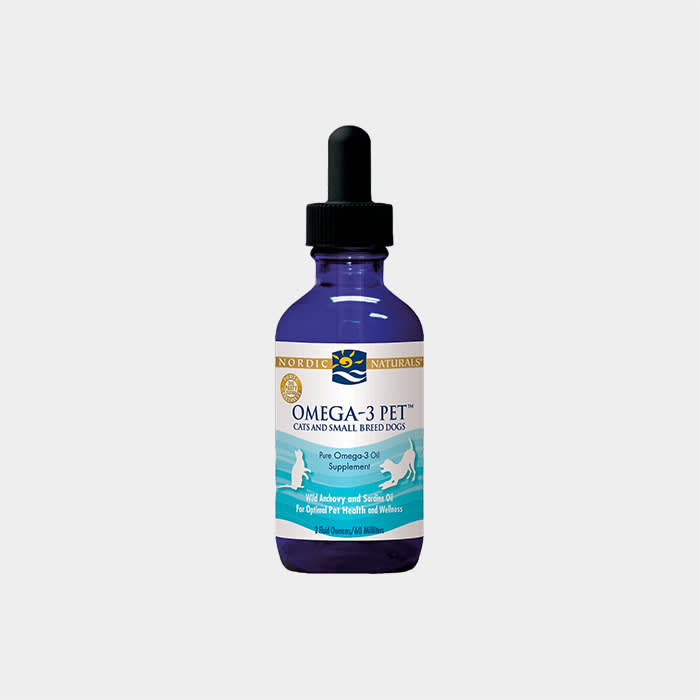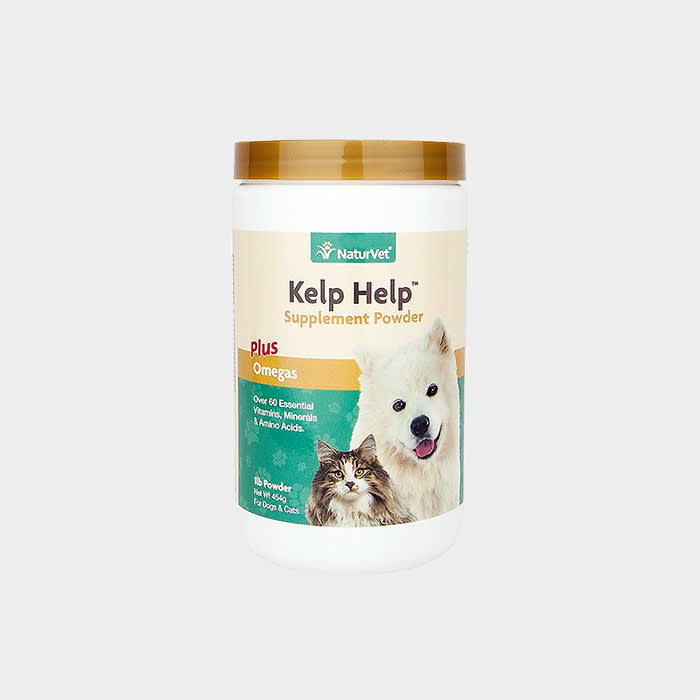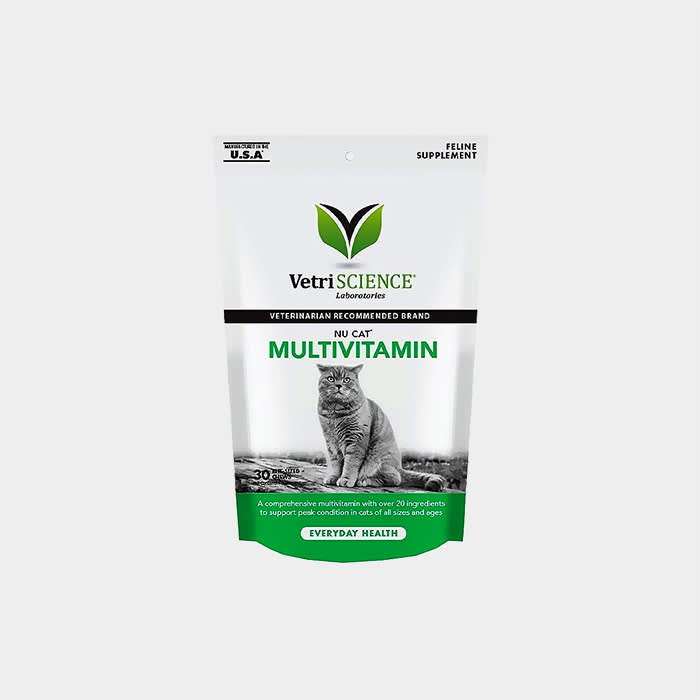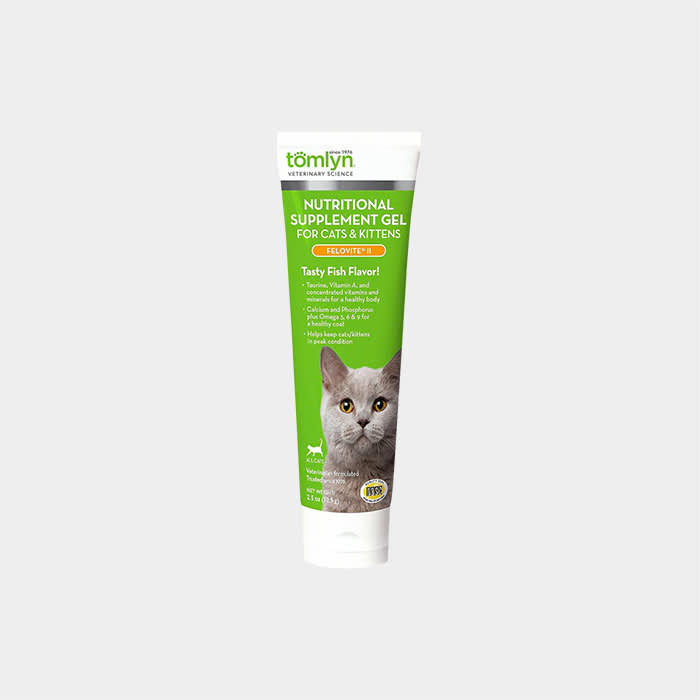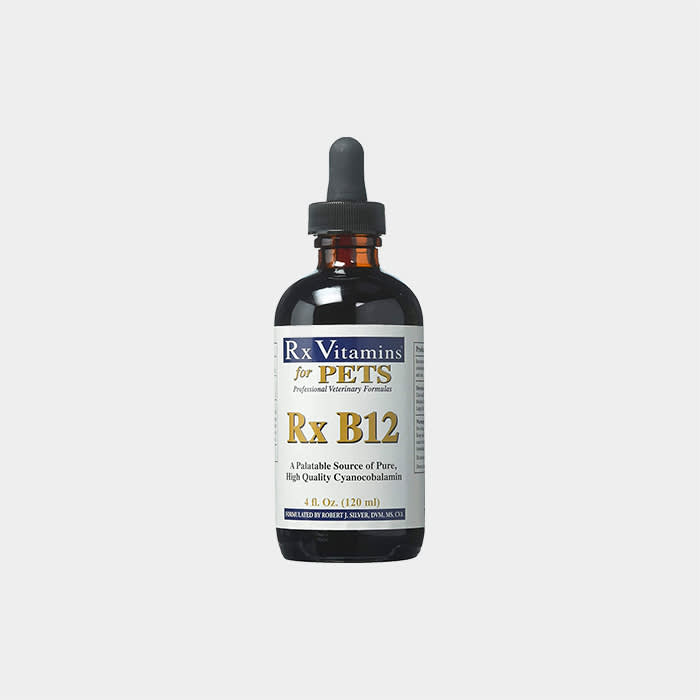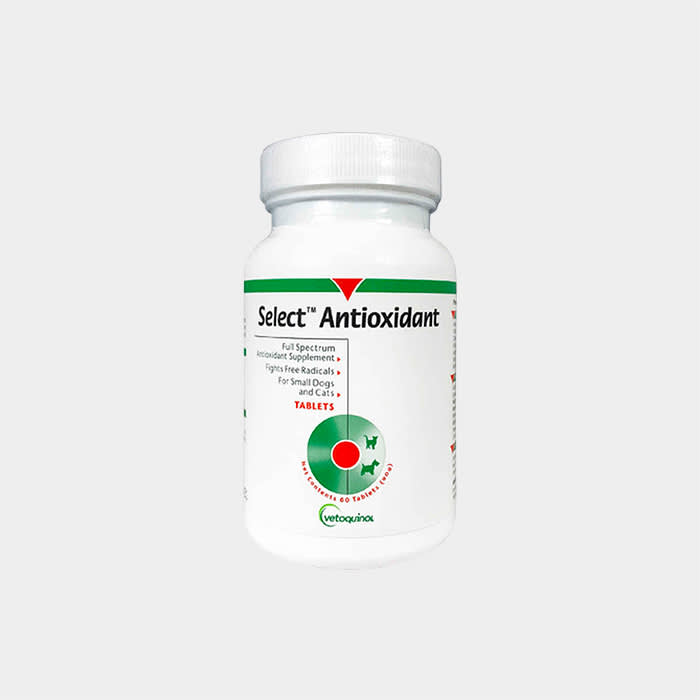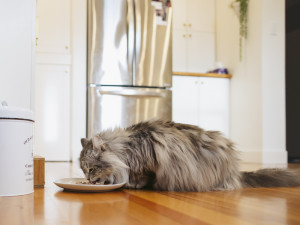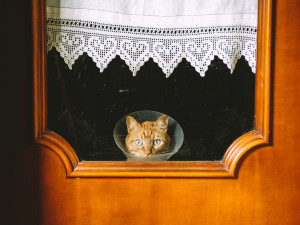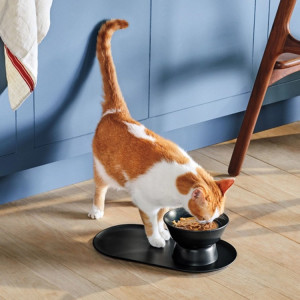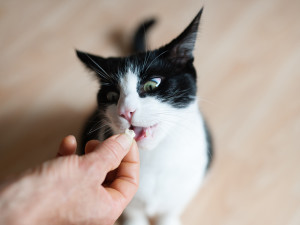The Best Supplements and Vitamins for Cat Health
Not your mama’s multivitamin.
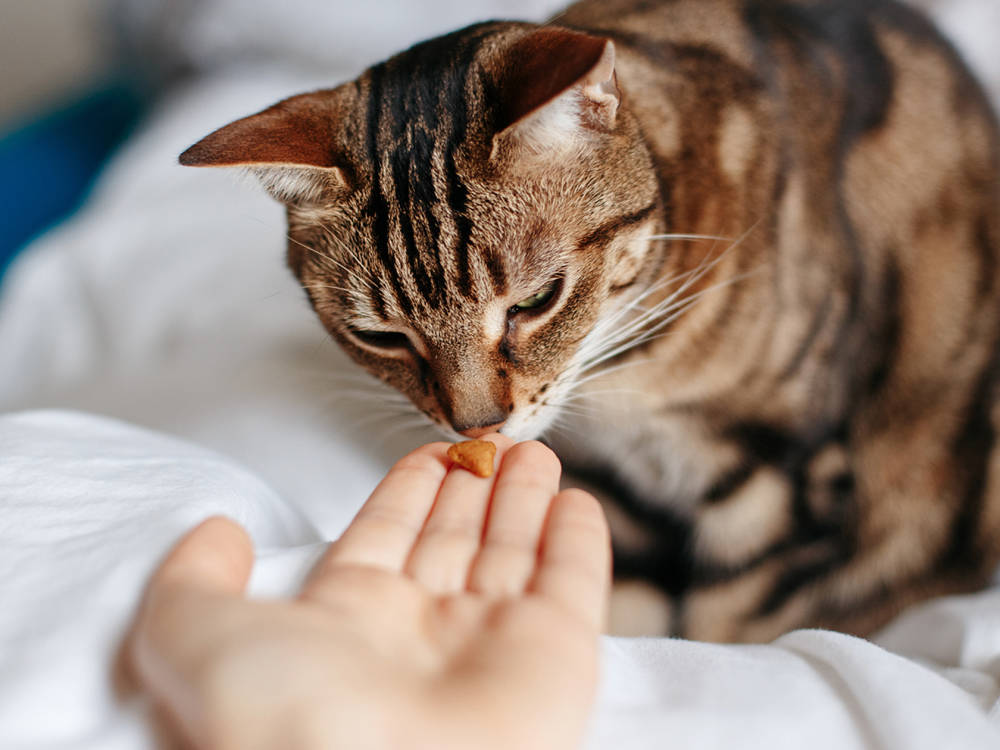
share article

Your pet wants you to read our newsletter. (Then give them a treat.)
In this Article:
Common Supplements and Vitamins For Cats opens in a new tabBest Supplements For Catsopens in a new tab Tips for Administering Supplements to Your Catopens in a new tab
Let’s see: You pop biotin supplements to grow out your hair, chew collagen gummies to stave off wrinkles, and stir adaptogens into your coffee for mental clarity. Isn’t your cat entitled to whatever superfood du jour promises them eternal youth, too?
Before you slip a supplement into your cat’s kibble, confirm with your vet that your cat doesn’t have any health concerns to consider first or that there’s potential for a medication interaction.
“Humans take vitamin supplements because most of us have terrible diets,” Dr. Angela Rollins says. “Even though it might be beneficial for us, most commercial cat foods are actually high-nutrient diets that don’t need extra vitamins or supplements. Calcium and phosphorous should also be in correct proportion to each other so giving your cat a vitamin supplement with extra phosphorous could throw that off balance. You may end up overdoing certain nutrients and introduce the potential for toxicity.”
That said, Rollins adds: “Most pet vitamins tend not to be very potent because manufacturers know they are being given in addition to an already complete and balanced diet.” Supplements show the most promise (and proven results) when cats have health conditions or vitamin deficiencies — from Omega-3 fatty acidsopens in a new tab’ heart-health benefits to antioxidants’ ability to fight chronic inflammation. You should still choose wisely: Read labels to ensure quality and look for brands that ideally have clinical studies backing their products. Below, several cat vitamins and supplements for your consideration.
Btw, our editors (and their pets) picked out these products. They’re always in stock at the time we publish, but there’s a chance they’ll sell out. If you do buy through our links, we may earn a commission. (We’ve got a lot of toys to buy over here, you know?)
Should I give my cat supplements?
Supplements and vitamins can be beneficial to your cat’s health. Common supplements include B12, D3, and Omega-3. It’s important to talk to your veterinarian before giving your cat any supplements or vitamins, so they can make sure that the supplements are safe and appropriate for your cat’s individual needs.
What are some common supplements and vitamins for cats?
Just like humans, cats need supplements for a variety of health reasons, from skin issues to stomach problems. Here are some of the most common types of supplements and vitamins for cats:
Omega-3 fatty acids: Found in certain fish oils and provides anti-inflammatory properties.
Probiotics: These are live microbes that help improve gut health.
Taurine: This amino acid helps support your cat’s heart health.
B12: This essential vitamin is used to prevent gastrointestinal disease.
Antioxidants: These may include vitamins C and E, and they protect the body against damage from free radicals.
The best Supplements and vitamins for cats
Best omega-3 supplement for cats
Best probiotic supplement for cats
Best skin supplement for cats
Best multivitamin for cats
Best taurine supplement for cats
Best B12 supplement for cats
Best antioxidant supplement for cats
Tips for administering supplements to your cat
It can be nerve-wracking to give your cat a pill. But there are some tricks of the trade that can make things much easier. Try these tips to give supplements to your cat:
Hide the pill in food: Ideally, this should be wet cat food or tuna. Try to mold the food around the pill.
Observe your cat: Watch your cat eat to make sure they take the pill. If you see them spit it out, you'll have to give them the pill by hand.
Administer the pill by hand: First, grease the pill with some cat food gravy so it will be easier for your cat to swallow. Next, hold the pill in one hand and use your other hand to hold your cat's mouth open. Tilt their head back, and drop the pill onto their tongue as far back as you can. Finally, close your cat's mouth and gently massage their nose or throat to stimulate swallowing.
Why it’s important to consult with a veterinarian before introducing supplements to your cat’s diet
Most commercial cat foods are already packed with nutrients — adding something into the mix (that your vet hasn’t approved) could throw your cat’s diet out of whack. In fact, you could accidentally give your cat too much of a certain nutrient, which could be toxic. To play it safe, always check with your vet before giving your cat supplements.
FAQs (People Also Ask)
1) Do older cats need supplements?
It depends on your cat. If they have certain health issues (like joint problems), they may benefit from a supplement. Ask your vet.
2) How can I ensure my cat’s supplements or vitamins are of good quality and safe?
To ensure your cat’s supplements are good quality and safe, read the labels to check the ingredients and look for brands that have clinical studies supporting their products.
3) What is the best way to determine the appropriate dosage of supplements for my cat?
It depends on your cat and the supplement. Some companies provide dosing guidelines based on your cat's weight but it's best to check with your vet before giving your cat a new supplement.
4) Are there risks involved with giving my cat supplements or vitamins?
Yes, supplements can be harmful if your cat doesn’t need them or you give them the wrong dosage. Always talk to your vet before giving your cat supplements.
Resources:

Jodi Helmer
Jodi Helmer is a North Carolina-based freelance writer who shares her home with an embarrassing number of rescue dogs and relies on four feral cats to patrol the barn. When she isn’t refilling food and water dishes, Jodi writes about animals for Scientific American, Sierra, WebMD, AKC Family Dog, Living the Country Life, and Out Here.
Related articles
![A cat eating wet food from a dish in the kitchen.]() opens in a new tab
opens in a new tab10 Cat Meal Toppers for Finicky Eaters
Tips for improving your cat’s appetite with these tasty add-ons.
![overweight orange cat]() opens in a new tab
opens in a new tabHow Much Should You Actually Be Feeding Your Cat?
If they’ve lost their hourglass figure, then not that much — according to a veterinary nutritionist.
![A grey cat looking at a dish of fish]() opens in a new tab
opens in a new tabThe 5 Best Fish Oils for Cats
The next best thing to branzino, omega-3s support your cat’s skin, brain, joint, and heart health.
![cat with cone after vet visit]() opens in a new tab
opens in a new tabDoctor’s Orders: Cat Vet Visits Are Essential
Get thy cat to a vet, even if it’s a struggle to get them out the door.
![A cat eating out of a black bowl from the brand, cat person.]() opens in a new tab
opens in a new tab6 Best Fresh Cat Food Delivery Services That Will Have Your Kitty Purring at Full Volume
It’s like Postmates — but for you spoiled cat.
![Black and white cat eating a cat treat from a man's hand]() opens in a new tab
opens in a new tab12 Best All-Natural Cat Treats
Some are sustainable, others are organic, but all are endorsed by discerning foodies (a.k.a. cats).
